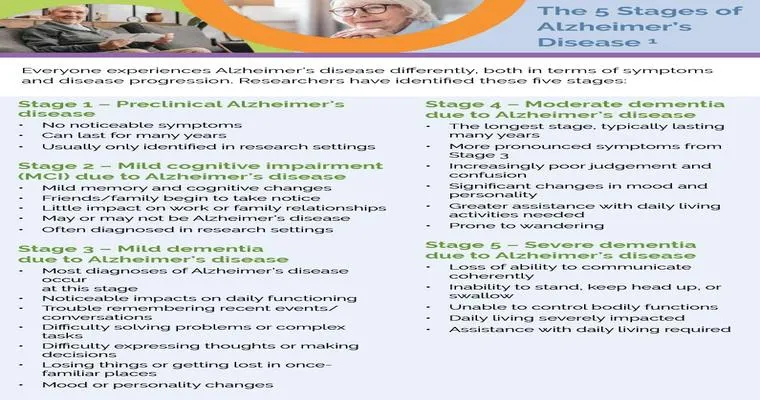Alzheimer’s disease is a progressive neurological disorder that primarily affects memory and cognitive function. Understanding the "stages of Alzheimer’s disease" is crucial for patients, families, and caregivers. The progression of this disease can be generally categorized into three main stages: early, middle, and late. Each stage presents unique symptoms and challenges that require different levels of care and support.
Early Stage of Alzheimer’s Disease
In the "early stage of Alzheimer’s disease", individuals may experience mild memory loss that often goes unnoticed. Common symptoms include difficulty remembering recent conversations, misplacing items, and challenges in planning or organizing tasks. This stage can last for several years, and while symptoms may be subtle, they can be frustrating for both the individual and their loved ones. Awareness of these early signs is vital for timely diagnosis and intervention.
Middle Stage of Alzheimer’s Disease
As the disease progresses into the "middle stage of Alzheimer’s disease", symptoms become more pronounced and can significantly impact daily life. Individuals may experience increased memory loss, difficulty recognizing family and friends, and confusion about time and place. Behavioral changes may also occur, including anxiety, agitation, and mood swings. This stage often requires more assistance with daily activities, such as dressing, eating, and personal hygiene. Caregiver support becomes essential during this time to manage the emotional and physical demands of caregiving.
Late Stage of Alzheimer’s Disease
The "late stage of Alzheimer’s disease" is characterized by severe cognitive decline and a loss of the ability to communicate effectively. Individuals may become bedridden and require full assistance with daily tasks. They may lose the ability to recognize loved ones and may have difficulty swallowing and eating. At this stage, the focus shifts to providing comfort and quality of life, often involving hospice care or palliative support. It is a challenging time for both patients and caregivers, making emotional and psychological support crucial.
Conclusion
Understanding the "stages of Alzheimer’s disease" is essential for preparing for the journey ahead. Early detection and intervention can improve the quality of life for those affected and help families navigate the complexities of care. Each stage presents its own challenges, but with the right support and resources, individuals with Alzheimer’s and their caregivers can find ways to cope and maintain dignity throughout the progression of the disease.





